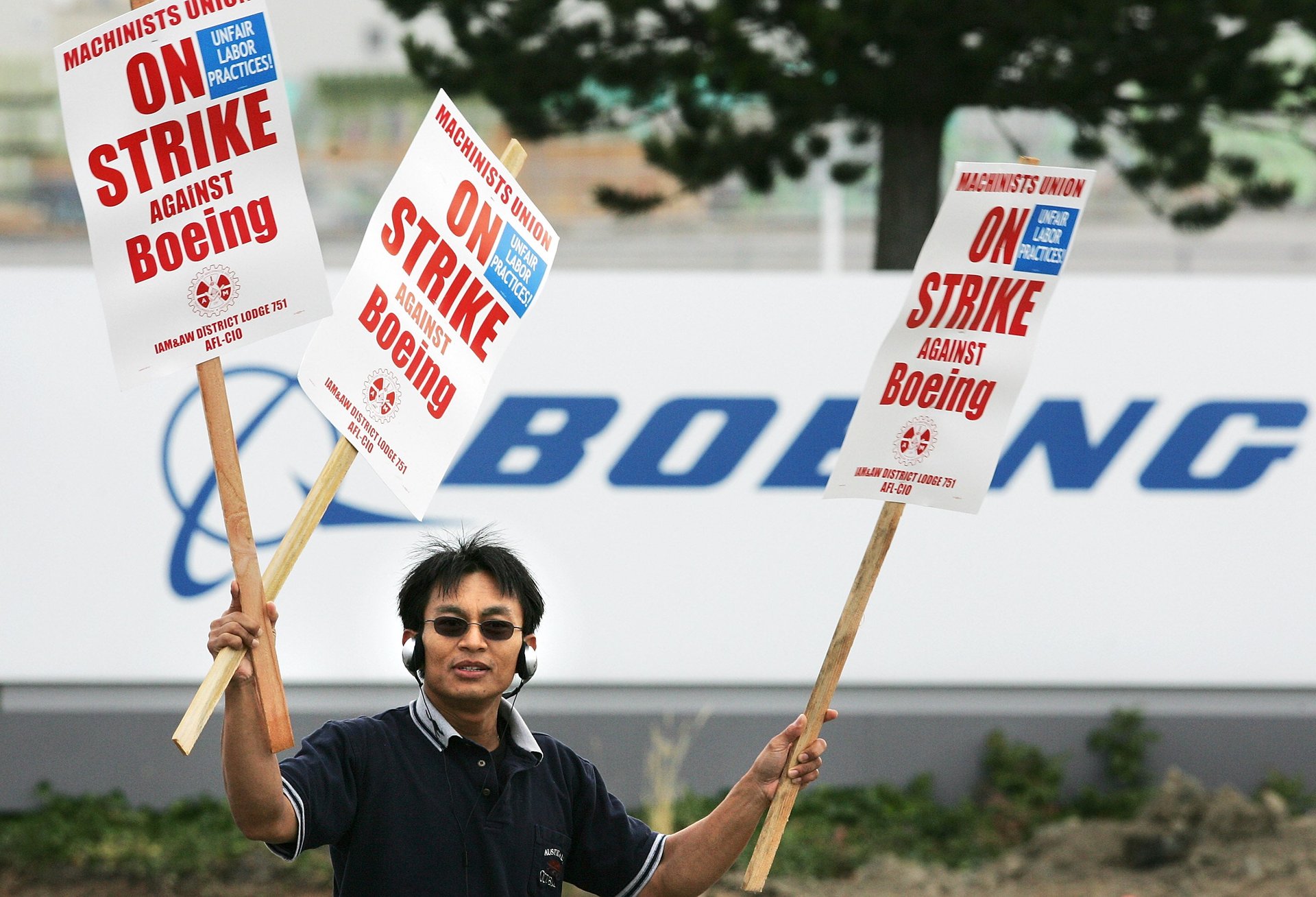A Boeing strike could be just days away as union members are expected to reject a proposed deal
The deal would give workers 25% wage increases. "The response from people is it's not good enough," a union leader said

As if Boeing hadn’t had enough issues this year, the troubled aerospace company looks like it’s heading toward a labor strike.
Suggested Reading
Jon Holden, the head of International Association of Machinists union district 751, which represents more than 30,000 Boeing (BA) employees on the West Coast, told The Seattle Times on Monday night he expects members to reject the company’s offered contract. Boeing and union leaders had announced the tentative deal, which has been endorsed by Holden, on Sunday.
Related Content
The deal, if approved, would give workers 25% wage increases by the end of the four-year contract, which would expire in September 2028. It would also provide higher minimum rates, reduced mandatory overtime, and paid parental leave. Perhaps most important, it would also give union members and leaders a voice in the safety and quality of Boeing’s production system and ensure that Boeing’s next commercial airplane is built in Washington state and Oregon.
“The response from people is it’s not good enough,” Holden told The Seattle Times. “Right now, I think it will be voted down, and our members will vote to strike.”
Some 33,000 members of the Machinists union across California, Washington, and Oregon will vote Thursday on the proposal and a strike. If they vote as Holden expects them to, a strike could begin as soon as midnight local time Friday.
Holden said the union will try to explain the benefits of the proposal and why he thinks it should be ratified. But Holden said he doesn’t believe members will change their minds.
Union members had hoped for a 40% pay hike, The Times reports, rather than a 25% increase, which Holden said is still the largest general wage increase for all members “in our history.” That mirrors similar complaints made by members of the United Auto Workers union last fall, when contracts with the Detroit Three automakers won general raises of 25%, compared to the 40% they demanded as they went on strike.
Jeffries analysts recently estimated that a 40% raise would add 2% to the planemaker’s cash needs, or $1.5 billion more than its current baseline.
Machinist union members were also looking to get back their traditional pension that was given up in 2013. Instead, Boeing will make new contributions to employee 401(k) retirement plans.
“If they can pay a CEO $35 million a year, that’s what, the best they can do? You know Tom Brady for example, if you wanted to see him on the team, he always took the pay cut,” Alexander, a union machinist, told KOMO News.
Former CEO Dave Calhoun made $33 million last year.
This is the first time that Boeing is negotiating a full contract with IAM 751 since 2008, which resulted in an eight-week labor stoppage that cost the company about $100 million a day in deferred revenue. The union’s members have been working under the same contract for more than a decade, which has been extended in the interim.
For Boeing, a strike would essentially shut down the company’s jet plants in the Puget Sound region, parts plant in Portland, and halt work on planes being fixed or stored at Moses Lake. A lengthy strike could affect the firm’s cash flow and its credit rating, which has taken a hit after a door plug blowout on ann Alaska Airlines (ALK) flight earlier this year.
The Jan. 5 incident resulted in a series of federal investigation into Boeing — which made the plane, a 737 Max 9 — and Sprit Aerosystems, a key supplier involved in the jet’s construction. The scandal caused by the blowout has prompted more “boots on the ground” inspecting Boeing and Spirit’s operations. An initial investigation by the NTSB found that four key bolts that were supposed to keep the door plug in place were not reinstalled during the plane’s production.
-Melvin Backman contributed to this article.